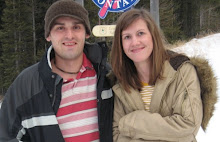'Golden Compass' author Philip Pullman inspires thrills -- and wrath
By CLAIRE DEDERERSPECIAL TO THE P-I
A writer sits quietly at his desk. He imagines a little girl. Something about her inspires him. He begins to write. The girl is joined by other characters: an explorer father; an ice-queen mother; a band of sea-faring Gypsies; a polar bear dressed in armor; a witch preoccupied with politics. The man sends these characters racing across the Arctic, up in hot-air balloons, through university halls, and down into abject dungeons. He's a British middle school teacher with a couple of mid-list novels under his belt, and he doesn't know that he's creating a universe that will bring down the wrath of Christians -- and thrill readers all over the world.
Philip Pullman published "The Golden Compass" in 1995. It's the first volume in the richly imagined trilogy of children's books called "His Dark Materials," which includes "The Subtle Knife" and "The Amber Spyglass." The trilogy follows Lyra -- an urchin who lives in a universe not unlike our own -- as she battles the totalitarian forces of the Magisterium, a global religious consortium.
The series has drawn three distinct readerships. It was first picked up, unsurprisingly, by young adults. With her sharp tongue, stout heart and impressive gift for lying, Lyra makes a pretty delicious preteen heroine. She starts life as the ward of Jordan College in Oxford, but her peaceful existence comes to an end when neighbor children begin to disappear. Mysterious adults are snatching kids off the street and spiriting them, it is whispered, to an ominous fortress far in the North. When they take Lyra's best friend, Roger, she decides she must save him. And so her propulsively plotted journey begins.
By her side every step of the way is her daemon, Pantalaimon. The daemon is Pullman's most charming invention. In Lyra's world, each human has a constant animal companion. This daemon is more than a pet; it embodies the human's very soul. For readers not long past the age of horse worship and kitten adulation, the notion of the daemon has proved irresistible.
Word of mouth spread, and adults became avid Pullmanites as well. The New York Times called the books "Harry Potter for grown-ups." Britain's prestigious Whitbread Prize was given to the final novel, the first time the prize ever was awarded to a children's book. Adults have been drawn, in part, by Pullman's gorgeous, imagistic prose. He writes fantastical scenes in a genuinely moving way, as when Lyra tends the wounds of Iorek Byrnison, king of the armored polar bears: "So the small human bent over the great bear-king, packing in the bloodmoss and freezing the raw flesh till it stopped bleeding. When she had finished, her mittens were sodden with Iorek's blood, but his wounds were stanched."
This kind of immediate, detailed writing has converted readers (like myself) who normally won't have anything to do with fantasy.
Pullman also demonstrates an appetite for big, challenging themes. He scavenges mythology and history for material: One page might subtly steal from Oedipus, the next from survivors' stories of the Holocaust, the next from Milton. Pullman isn't afraid to wrestle with the meaty stuff of good and evil, and good hardly ever turns out to be on the side of the church. His villains are religious hypocrites; his heroes are self-determined freethinkers.
This conflict reaches a climax in the final novel, when Lyra achieves her destiny, which involves killing God himself. This last bit of plotting brought Pullman another audience: Christians, who have pilloried the series. Now "The Golden Compass" has been made into a film, and Christians -- or at least their highly vocal, self-appointed representatives, such as the Catholic League -- have undertaken a campaign to boycott the film. (Is it just me, or does the name the Catholic League conjure up some shady, diabolical organization from a 1950s comic book?) They've flooded Amazon and other Web sites with posts, wherein they warn parents that Pullman is an "atheist!" and that in the final novel of the series "the children actually kill God!"
I, for one, find this outcry strangely moving. Not that I agree with these bossy handwringers; quite the opposite. But the fact that they care so much seems to me astonishing. It's a story worthy of Pullman himself: A man alone at his desk conjures a vision of a universe so free and happy that it terrifies perfect strangers.
Sunday, December 7, 2008
Subscribe to:
Post Comments (Atom)

No comments:
Post a Comment